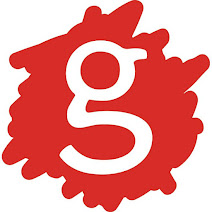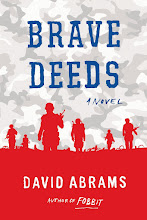If poetry is one of our nation's most invisible arts--transparent to the average American who is daily barraged with the cultural noise of everything ranging from American Idol to Charlie Sheen's Twitter feed--then surely the United States Poet Laureate is the palest of ghosts floating across the landscape. Stop ten people on the street and ask them to name the current poet laureate and you'll be lucky if you get one correct response. True confession? I would be one of those people giving you a blank stare.
The Poets Laureate Anthology , edited by Elizabeth Hun Schmidt and published by W. W. Norton in association with the Library of Congress, sets out to right that wrong. At the very least, the thick volume of verse goes a long way toward lending the reputation of the Nation's Poet a certain dignity and gravitas. The anthology compiles select poems from each of the 43 American poets laureate, from the first (Joseph Auslander, who served from 1937 to 1941) to the latest (W. S. Merwin, who began his term in 2010 and also served from 1999 to 2000). The position was originally called "Consultant in Poetry" and was renamed in 1985.
, edited by Elizabeth Hun Schmidt and published by W. W. Norton in association with the Library of Congress, sets out to right that wrong. At the very least, the thick volume of verse goes a long way toward lending the reputation of the Nation's Poet a certain dignity and gravitas. The anthology compiles select poems from each of the 43 American poets laureate, from the first (Joseph Auslander, who served from 1937 to 1941) to the latest (W. S. Merwin, who began his term in 2010 and also served from 1999 to 2000). The position was originally called "Consultant in Poetry" and was renamed in 1985.
So what, exactly, does the poet laureate do? It's often a mystery even to those who hold the chair. As Schmidt notes, it's "the only official job in the arts in the United States;" laureates are appointed by the Librarian of Congress for a one-year term. Apart from giving an annual reading and lecture, the poet is pretty much free to make use of the time however he or she pleases. Some work on new poems, some start programs to bring more poetry to high schools, and some lobby to place poetry books in motels and supermarkets. In his foreword to the anthology, Billy Collins attempts to explain:
The Poets Laureate Anthology sheds bright, strong light on the office and gives background information on each of the poets, along with a generous slice from their body of work. The book arranges the poets in reverse chronological order and it's an interesting time-travel trip going from the unpunctuated free verse of Merwin to the dense formality of Conrad Aiken's poems. Instead of peeling away layers, it feels like the opposite--as if we're starting out in T-shirt and shorts, then adding more and more clothes until we're bundled with heavy winter coats. This is less a criticism of the ornately-structured verse of the early 20th century than it is a way of saying I was fascinated by how poetry's roots began to show the farther back in the book I traveled.
I haven't read the entire anthology--in fact, I'm just starting my journey with Merwin--but in leafing through the pages, I can already tell there are plenty of beautiful landmarks waiting for me ahead. We get the expected highlights--Robert Frost's "The Gift Outright" and William Carlos Williams' red wheelbarrow--but we're also treated to Donald Hall's "To a Waterfowl" which begins:
 which brought me back to poetry after a long post-graduate drought. There in my hooch, hunkered down from mortar strikes in Baghdad in 2005, I would start each morning by reading one or two poems from that book. When I was done with Collins, I moved on to Andrew Hudgins
which brought me back to poetry after a long post-graduate drought. There in my hooch, hunkered down from mortar strikes in Baghdad in 2005, I would start each morning by reading one or two poems from that book. When I was done with Collins, I moved on to Andrew Hudgins and then Gilgamesh
and then Gilgamesh and then finished out my tour of duty with Walt Whitman. When I returned to the States, the habit continued. To this day, I reach for a poem while my morning coffee is brewing.
and then finished out my tour of duty with Walt Whitman. When I returned to the States, the habit continued. To this day, I reach for a poem while my morning coffee is brewing.
And that's my challenge to you, dear blog reader. If you haven't already integrated poetry into your life, why not start now? April is National Poetry Month, after all. I can't think of a better time to begin a poem-a-day routine. Grab a copy of The Poets Laureate Anthology, visit your library, browse the poetry section of your local bookstore, or log on to Poets.org and get a Poem-a-Day email in your inbox each morning. I'm not saying poetry will change your life, but it will--for a few short moments--add some music to it and make you see the world through fresh eyes.
*From The Poets Laureate Anthology, published by W.W. Norton in association with the Library of Congress. Poem copyright Donald Hall
**From The Poets Laureate Anthology, published by W.W. Norton in association with the Library of Congress. Poem copyright Billy Collins
The Poets Laureate Anthology
So what, exactly, does the poet laureate do? It's often a mystery even to those who hold the chair. As Schmidt notes, it's "the only official job in the arts in the United States;" laureates are appointed by the Librarian of Congress for a one-year term. Apart from giving an annual reading and lecture, the poet is pretty much free to make use of the time however he or she pleases. Some work on new poems, some start programs to bring more poetry to high schools, and some lobby to place poetry books in motels and supermarkets. In his foreword to the anthology, Billy Collins attempts to explain:
Becoming the United States poet laureate is a surprisingly straightforward process, especially considering the trumpeting resonance of the title. Unlike the British model, the American version is conferred without ceremony or ritual of investiture. No wreath is bestowed, nor is a cask of dry wine bestowed as is the custom in England. The news, however stunning, is delivered via a phone call from the Librarian of Congress, who congratulates you and talks you through a short list of duties, and after a pleasant luncheon in the Library's pavilion weeks later--poof, you're the new poet laureate.Most PLs know what they don't want to be. As Schmidt notes in her introduction, Robert Penn Warren said "he had no intention of performing as a 'hired applauder' or of writing 'odes on the death of the President's cat.'"
The Poets Laureate Anthology sheds bright, strong light on the office and gives background information on each of the poets, along with a generous slice from their body of work. The book arranges the poets in reverse chronological order and it's an interesting time-travel trip going from the unpunctuated free verse of Merwin to the dense formality of Conrad Aiken's poems. Instead of peeling away layers, it feels like the opposite--as if we're starting out in T-shirt and shorts, then adding more and more clothes until we're bundled with heavy winter coats. This is less a criticism of the ornately-structured verse of the early 20th century than it is a way of saying I was fascinated by how poetry's roots began to show the farther back in the book I traveled.
I haven't read the entire anthology--in fact, I'm just starting my journey with Merwin--but in leafing through the pages, I can already tell there are plenty of beautiful landmarks waiting for me ahead. We get the expected highlights--Robert Frost's "The Gift Outright" and William Carlos Williams' red wheelbarrow--but we're also treated to Donald Hall's "To a Waterfowl" which begins:
Women with hats like the rear ends of pink ducksAnd we get Billy Collins' "Introduction to Poetry" in which he tells us how he wants his students to approach and appreciate a poem ("press an ear against its hive"). He writes:
applaud you, my poems.
These are the women whose husbands I meet on airplanes,
who close their briefcases and ask, "What are you in?"
I look in their eyes, I tell them I am in poetry,
and their eyes fill with anxiety, and with little tears.
"Oh, yeah?" they say, developing an interest in clouds.*
I want them to waterskiCollins has particular meaning to me as reader. I've mentioned before how it was his collection Questions About Angels
across the surface of a poem
waving at the author's name on the shore.**
And that's my challenge to you, dear blog reader. If you haven't already integrated poetry into your life, why not start now? April is National Poetry Month, after all. I can't think of a better time to begin a poem-a-day routine. Grab a copy of The Poets Laureate Anthology, visit your library, browse the poetry section of your local bookstore, or log on to Poets.org and get a Poem-a-Day email in your inbox each morning. I'm not saying poetry will change your life, but it will--for a few short moments--add some music to it and make you see the world through fresh eyes.
*From The Poets Laureate Anthology, published by W.W. Norton in association with the Library of Congress. Poem copyright Donald Hall
**From The Poets Laureate Anthology, published by W.W. Norton in association with the Library of Congress. Poem copyright Billy Collins














I get a poem-a-day from Knopf...I think it's the same thing? Great way to overcome poetry inertia...
ReplyDelete